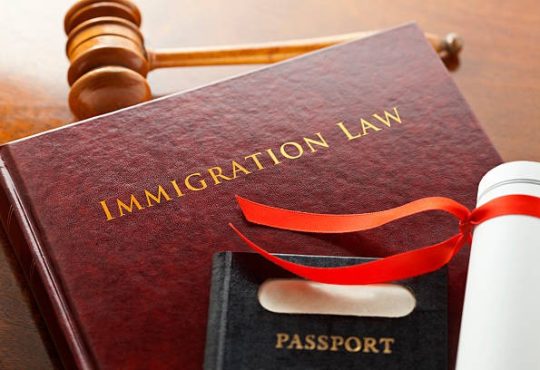
Who Needs an Estate Plan?
Think about your life’s achievements, cherished possessions, and the loved ones you’ll someday leave behind. It’s a topic most people prefer to avoid, but it’s an inevitable part of life. Estate planning isn’t just for the wealthy or elderly; it’s a strategic move for anyone who wants to make life easier for their loved ones after they’re gone.
So, you might be wondering who needs an estate plan. Let’s break down the essentials of a practical estate strategy that includes everyone from young adults to retirees and why it’s crucial to stay ahead of the game.
What is the Purpose of an Estate Plan?
An estate plan is more than deciding where your assets go after passing away. It’s about respecting your healthcare wishes, minimizing taxes, and avoiding the lengthy probate process for your beneficiaries. It involves documents like wills, trusts, power of attorney, and healthcare directives. But it’s not just about what happens after you’re gone – it’s also about taking control of your assets and life.
Who Should Be Considering an Estate Plan?
Let’s set the record straight: virtually everyone can benefit from having an estate plan in place. Whether you’re a young professional just starting, a parent with children to protect, or someone enjoying their golden years, estate planning is a vital part of managing your life and legacy.
1. Young Adults
You might think you’re too young to need an estate plan, but what happens if you face an unexpected medical situation? Who will make decisions on your behalf? Having an estate plan lets you appoint a trusted individual to manage your affairs if you cannot do so yourself.
2. Parents with Minor Children
If you have young children, naming guardians for them is one of the most critical decisions you can make. Without an estate plan, the court decides who will care for them if something happens to them. That’s a decision you’ll want to make yourself.
3. Homeowners
Own a home? You’ve got an asset that needs to be addressed in your estate plan. Deciding who inherits your property can help avoid disputes and fulfill your wishes.
4. Retirement Savers
Your retirement accounts, like IRAs and 401(k)s, must also be considered. Estate planning can ensure that these funds are distributed according to your wishes and in the most tax-efficient way possible.
5. Everyone Else
Even if you don’t fit neatly into one of these categories, you likely have possessions, bank accounts, or other assets that you’ll want to manage or pass on in a certain way. Don’t leave it up to state laws to decide.
The Role of an Estate Planning Attorney
While you may like planning your estate, the process can seem daunting. That’s where an estate planning attorney in Fort Myers comes in. They are legal professionals helping people create and implement effective estate plans.
From drafting a will to setting up trusts, these attorneys ensure that your estate plan aligns with your goals and complies with current laws. Seeking professional help can provide peace of mind and protect your loved ones from unnecessary stress and legal hurdles in the future.
Critical Components of a Strong Estate Plan
No two estate plans are exactly alike, but there are some common elements that many people will include:
-
Last Will or Revocable Living Trust
-
Durable Power of Attorney
-
Healthcare Power of Attorney
-
Beneficiary Designations
-
Guardianship Designations for Minor Children
-
Letter of Intent
These components work together to create a comprehensive plan that addresses the distribution of your assets, your care, and the well-being of those you love.
What is Probate with an Attorney?
Planning your estate is one thing, but what about after you’re gone? That’s where probate comes in. It’s the legal process through which your estate is administered and distributed. Having a trusted professional to guide your loved ones through this process can be invaluable.
You can visit websites like pizzolatolaw.com/probate/ to connect with a probate lawyer who specializes in this area and can help your family navigate the complexities of probate, reducing the burden on your loved ones during a difficult time.
Why Trust Administration Matters
For those with trust as part of their estate plan, the role of a trust administrator is critical. They manage your trust after you pass away, ensuring your assets are distributed according to your wishes without probate. This is where a trust attorney in Fort Myers can be a game-changer.
They can offer the guidance needed to manage the trust properly, ensuring your beneficiaries receive what you intended them to have promptly and efficiently. This kind of professional assistance cannot be overstated, as it safeguards your assets and fulfills the purpose of your carefully created estate plan.
Making Your Estate Plan Work for You
Your estate plan should be as unique as you are. It’s not a one-time task but an evolving strategy that should change as your life changes. Updating your estate plan is essential as you acquire more assets, welcome new family members, or experience other significant life events. Regular reviews with an attorney can help ensure your plan stays current and effective.
Final Thoughts
Estate planning chats aren’t precisely party talk, but it’s a subject that deserves your attention. If you care about what happens to your assets, your healthcare preferences, or who takes care of your children if you can’t, then you need an estate plan. It’s not about age or wealth; it’s about being responsible and prepared. By putting plans in place now, you’re providing clarity and comfort to your loved ones and securing your legacy for the future.






